Our preview specialist, Aaron Wong, tackles the worthiness of received wisdom concerning defending champions China, and illustrates the strengths of the various countries imminently heading to New Delhi from May 18 to 25 to do battle for the Uber Cup, otherwise known as the World Badminton Women’s Team Championships.
By Aaron Wong, Badzine Correspondent. Photos: Badmintonphoto
Preface: In search of compelling questions
The Thomas and Uber Cups (TUC) run concurrently and are the longest running team championships in international badminton. In terms of history, they are only eclipsed by the All England tournament yet its biennial recurrence ensures it is the major highlight of every non-Olympic year in which it unfolds.
And yet, for a highlight, the Uber Cup in particular is thought by many to be without much uncertainty, let alone suspense. Statements to the effect of “China will win” are…well, not uncommonly heard. Are they actually beneficial?
Unless one is a motivational speaker hired to raise the morale of said team, such a statement needs to be shuffled to the bottom of the stack of remarks as it reduces the reasons for playing the event as well as watching it to something too simplistic.
Nevertheless, it is useful to get it out of the way at the outset. That isn’t to say China’s part shouldn’t be discussed but rather the issue is with closed and largely incendiary statements which give children an inaccurate view of what’s important and colours anyone else away from exercising independent judgement.
There are the more interesting and compelling questions which can enable viewers to form a useful picture of the current state of international badminton. In other words, why is this tournament worth watching?
Prior to the quarters
The first four days of competition are dedicated to group stages where all sixteen of the world’s best countries in women’s badminton are on display. Day 2 has the potential for interesting scratch pairs to be made up of singles players doing doubles duties or vice versa especially for the Hong Kong and Russian women. Hong Kong fielding the multi-disciplinarian Chan Tsz Ka in doubles would afford them two top 20-calibre pairs and a good chance at scooping both doubles against India. Would such a scenario stir up anxiety in any of the host nation’s singles representatives? India’s singles stars Saina Nehwal and P. V. Sindhu have been known to choke playing on home soil.
Day 3 is the first occasion for Thailand’s singles to exhibit their class and they will want to win the encounter as a whitewash over Nehwal and Sindhu, both recently inside the world’s top 10, as a signal of their intentions to the other top four seeded countries.
Similarly, on Day 4, Korea will endeavour to stamp their authority over Indonesia, especially where doubles is concerned. The first singles match-up between Tai Tzu Ying of Chinese Taipei against China will give a glimpse as to the readiness of that particular Chinese singles player that is chosen. Chances are China may choose to rest world #1 Li Xuerui and use world #2 Wang Shixian instead for the encounter. Resting a player may have less to do with fatigue management than avoiding an occasion for injury.
Group stage match–ups of note:
| Day 1 | Thailand [3/4] vs. Hong Kong |
| Day 2 | Denmark [5/8] vs. Malaysia India [5/8] vs. Hong Kong Chinese Taipei [5/8] vs. Russia |
| Day 3 | Thailand [3/4] vs. India [5/8] |
| Day 4 | Korea [3/4] vs. Indonesia [5/8] China [1] vs. Chinese Taipei [5/8] |
Knockout round: The suspense
A new draw for the quarter-finals stage ensures suspense for the teams and excitement for spectators. Although Japan are seeded second, the biggest threat for the defending champions China is almost certainly Thailand, whose team contains four talented singles players including current World Champion Ratchanok Intanon. In fact, including 2013 U.S. Open champion Sapsiree Taerranattachai, five Thais have been ranked in the top 20 before and are known to trouble the Chinese.
Having four top-twenty singles players to select from allows Thailand not only an element of surprise but sufficient quality on a good day to snatch the Uber Cup without resorting to relying on doubles. Furthermore, none of the other countries apart from China and Thailand have any high percentage likelihood of winning an encounter through singles alone.
Plan Bs: Japan and Korea do have ’em
Thailand, relatively speaking amongst the top four countries, is a one-trick pony. They may possess energetic world number 11 women’s doubles pair, Duanganong Aroonkesorn / Kunchala Voravichitchaikul and veteran Saralee Thoungthongkam but their country’s impact has been barren at the Superseries level and moderately successful at Grand Prix of late. There isn’t evidence to suggest they can take down Japan or Korea in doubles.
So if Japan or Korea are somehow able to snatch two singles against China or Thailand, they are quite capable of sending proceedings into tense overtime since they have been sharing the finals berths at Superseries events with the almighty China.
Almighty China: Seven times One
China’s team, despite leaving off the list Beijing Olympic champion Yu Yang, can boast seven players across both singles and doubles who have reached world number 1 and only one of their ten member squad, twenty-year-old singles specialist Sun Yu, has yet to earn a Super Series title.
The credentials of the defending champions are obviously very impressive this time around, and to refresh the memory, at the last edition, they took down Germany, Thailand, and Korea to regain the Uber Cup without dropping even one match.
The difference in the last two years is that other players have continued to gain ground on China. In particular, the Thais are extending matches into rubber games and the Koreans have begun to unravel some of their longstanding doubles combinations.
But the problem is that China has barely been emphasising their longstanding women’s doubles pairings Wang Xiaoli / Yu Yang and Tian Qing / Zhao Yunlei in international competition this year. The capability of China, Japan and Korea to bring along six top-notch doubles players each is clearly something that will keep their opponents guessing, with China having begun preparing various scratch pairings more than a year earlier. The prominent case in point being Bao Yixin who has won at the Superseries level with three different partners.
Worth watching for…
We have seen Chinese players in isolated instances fight when they are backed into a corner but it has been four years since we have witnessed every player in their team bare their teeth so to speak, and that is the kind of badminton worth crying out for.
It is amazing what kind of extra reserves the Chinese players are capable of. But, in general, witnessing extra reserves being summoned by any side or any player is the real gold. It focuses on the inspirational.
As T.S. Eliot put it:
“Only those who risk going too far can possibly find out how far they can go.”
The story is different right now
The broadest of generalisations is true: to their credit, China’s women do continue to dominate the scene when you check world rankings alone but on the ground level the sense amongst players is that anyone is beatable. So the Chinese haven’t been resting on their reputations either. This is not a recent revelation but the more years it persists the more it becomes the norm for players, with us viewers needing to catch up to the actuality. The story is different now, the Chinese women do not have a stranglehold as they did at the start of the millennium.
The rise of resistance to China’s women did not begin with Korea’s Bae Seung Hee’s famous victory at the Uber Cup four years ago but her achievement marked the turning point indelibly in history which has strengthened since by Thailand’s Ratchanok Intanon turning World Champion last August. Non-Chinese players may take the progress further or perhaps the momentum may swing back to the Chinese, and the Uber Cup is a stage where everyone will particularly remember if something amazing happens.
![UBER CUP 2014 Preview – Aiming for better than zero Our preview specialist, Aaron Wong, tackles the worthiness of received wisdom concerning defending champions China, and illustrates the strengths of the various countries imminently heading to New Delhi from May […]](https://www.badzine.net/wp-content/uploads/Newsflash-thumbnail.png)
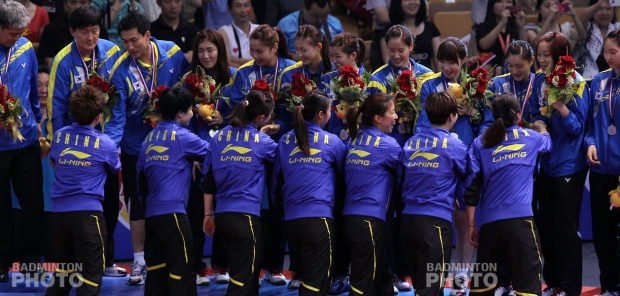
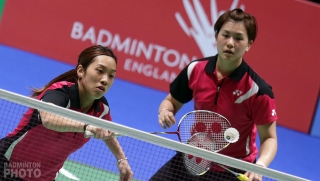
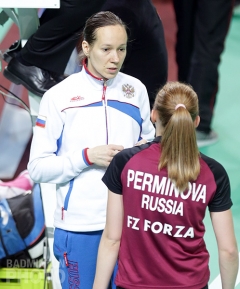

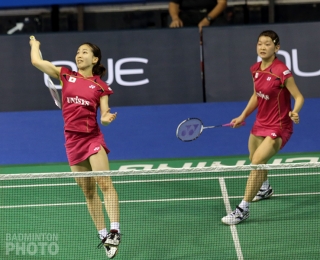
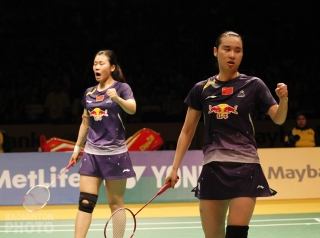
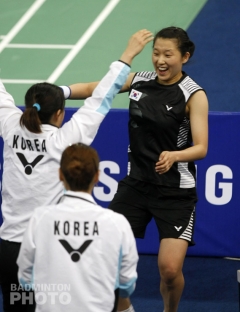

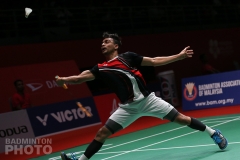
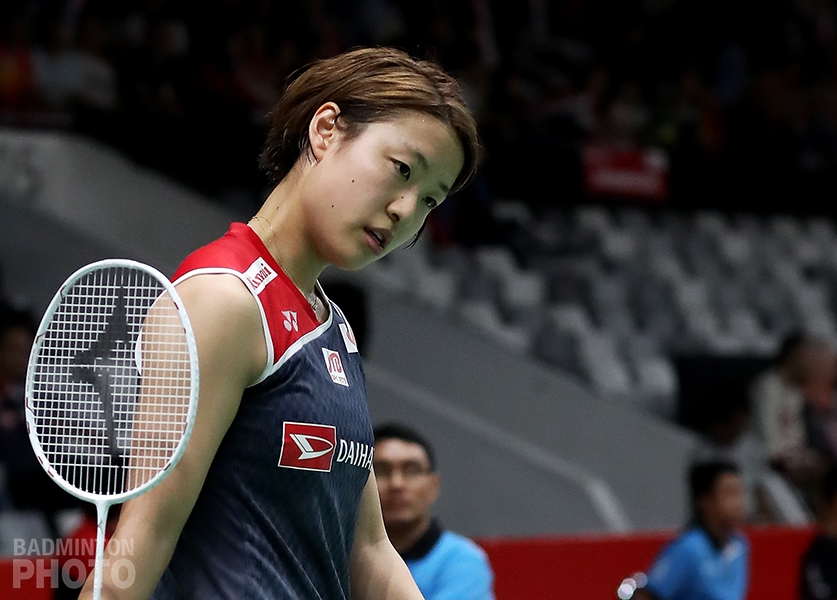
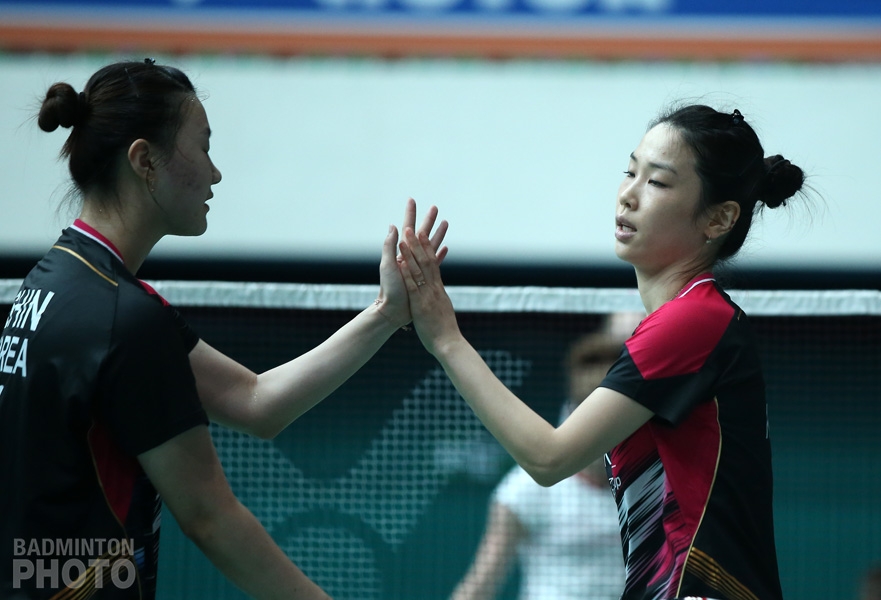

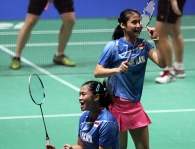
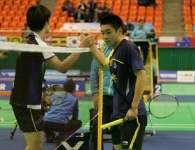
Leave a Reply